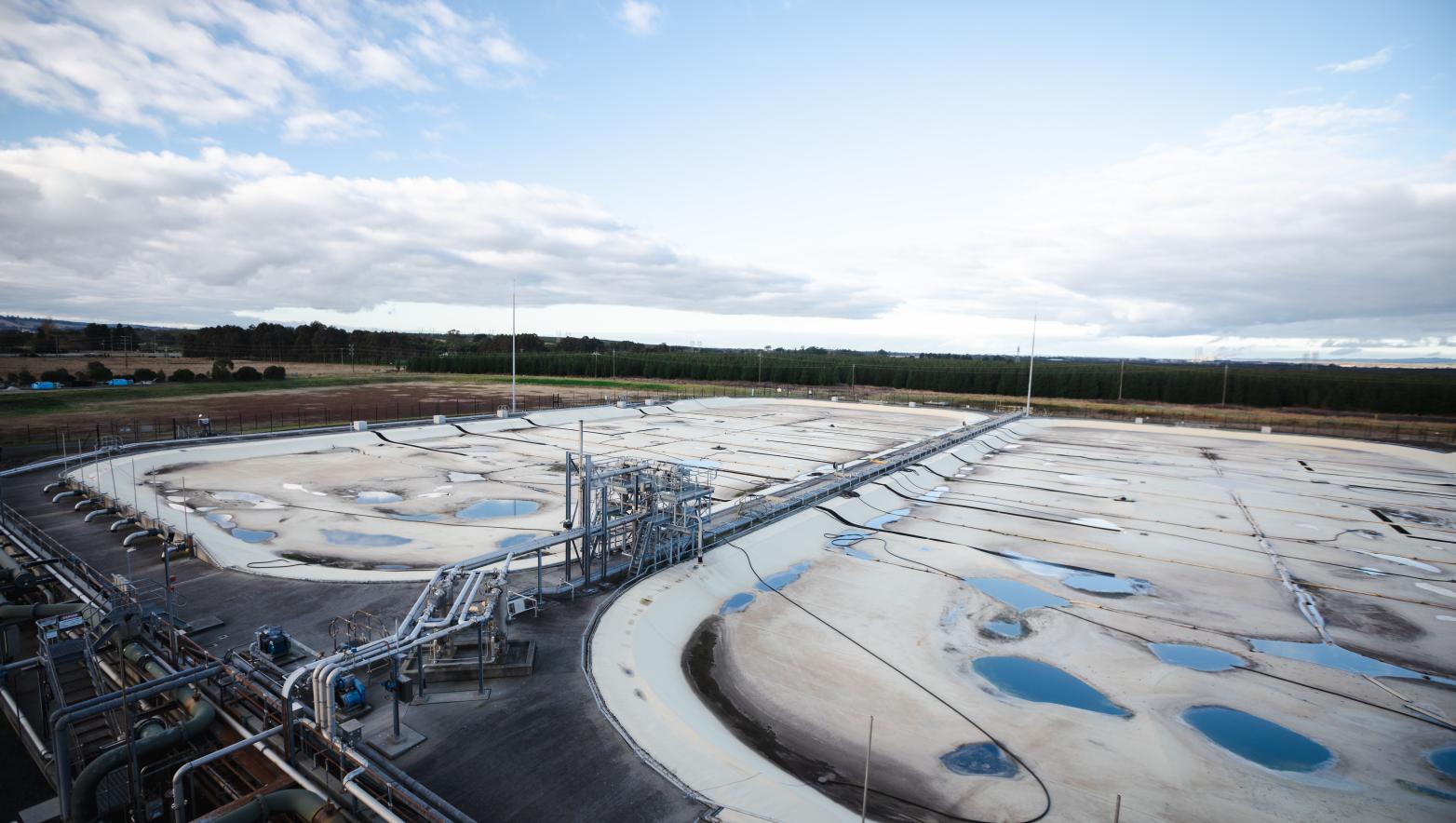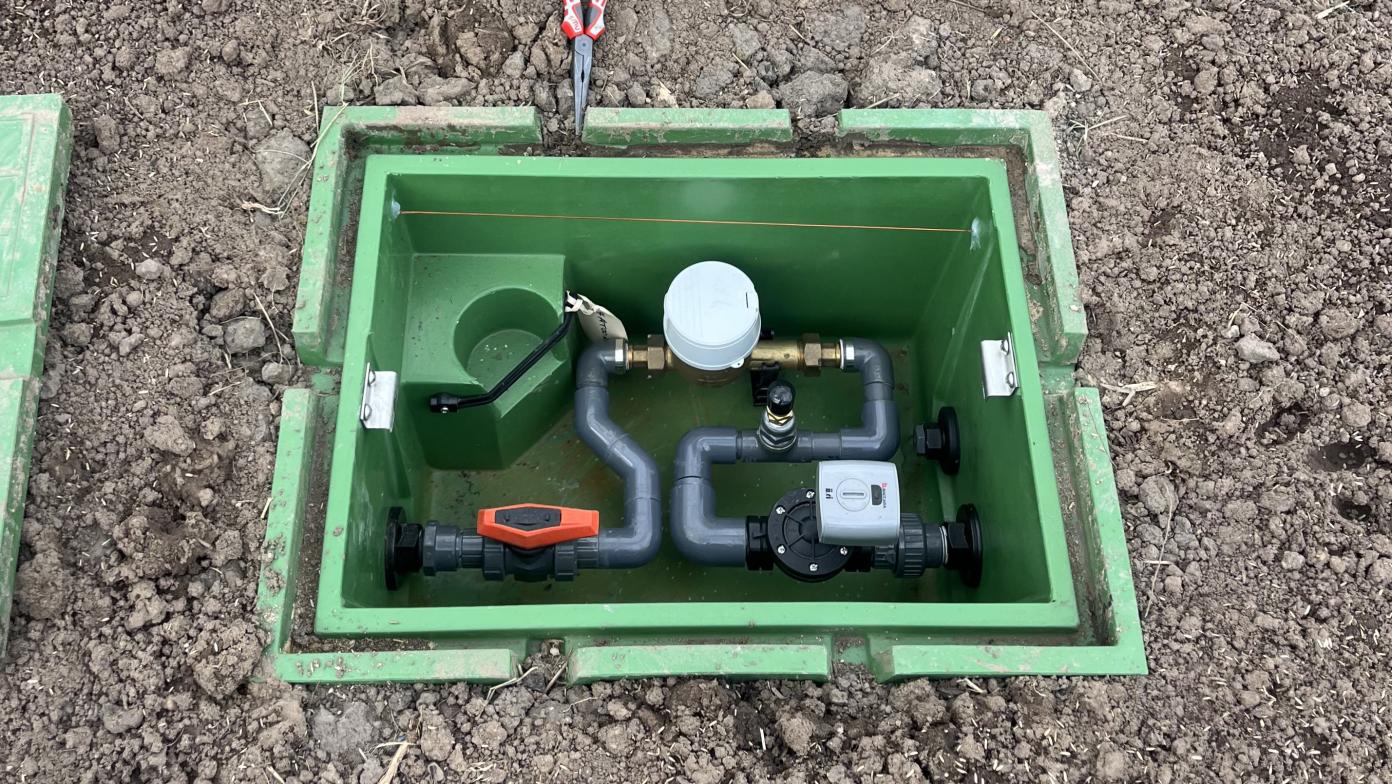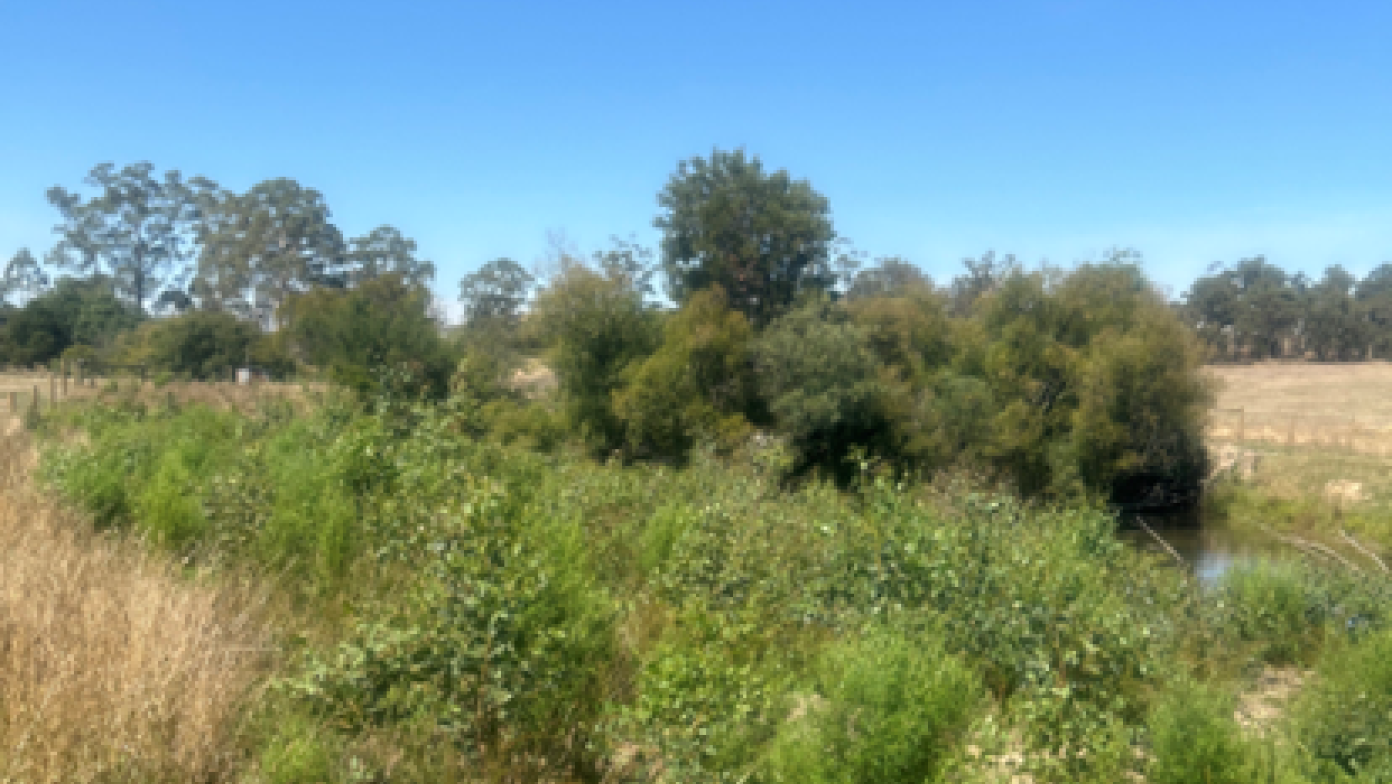Critical wastewater facility upgrades underway

Gippsland Water has commenced critical upgrade works on one of its most complex industrial assets at the Gippsland Water Factory, a large-scale wastewater treatment facility near Morwell.
The ageing covers on the two covered industrial wastewater lagoons which treat waste from Opal’s Maryvale Mill at the facility will be replaced to ensure they can continue to operate safely and effectively.
Preliminary work to replace the covers has started and the project may take up to 12 months to complete.
Gippsland Water general manager assets Nic Moss said replacing the covers would ensure the lagoons continued to operate effectively as part of the treatment process.
“The wastewater lagoon covers are approaching end of functional life and this work will ensure we can continue to treat industrial waste into the future,” Mr Moss said.
“This site is one of the most critical assets we manage and supports major industry and jobs across the region.
“The facility treats industrial waste through a specialised process which includes creating an anaerobic environment, where oxygen is restricted to allow microorganisms to break down the waste.
“As part of the anerobic process hydrogen sulphide gas (H2S) is generated which can be hazardous.
“During normal operations, the covers contain biogas which is then transported to a generator which converts it into electricity for the plant.”
Mr Moss said the organisation was working with industry experts to minimise the impact of the works on neighbouring properties and the wider community.
“Extensive planning has been undertaken to prepare for and manage the project risks to enable the safe replacement of the covers,” Mr Moss said.
“Our focus for these works is to ensure the safety of our staff and the contractors onsite and minimising the impact on neighbouring properties or the wider community.
“Throughout the project we will continue to monitor and implement a range of measures to mitigate these risks.
“Works will take place on one lagoon at a time and the anaerobic process will be stopped to reduce the gas to a safe level before the cover is removed.
“There’s potential for some odour to occur during the project, however we’re doing all we can to minimise it.
“We’ve reached out to our neighbours to let them know what’s happening, and we’ll continue to keep them informed for the duration of the project.”
The Gippsland Water Factory treats industrial waste from Opal Australian Paper as well as wastewater from local residents and businesses.
For more information visit: https://www.gippswater.com.au/replacementcovers


